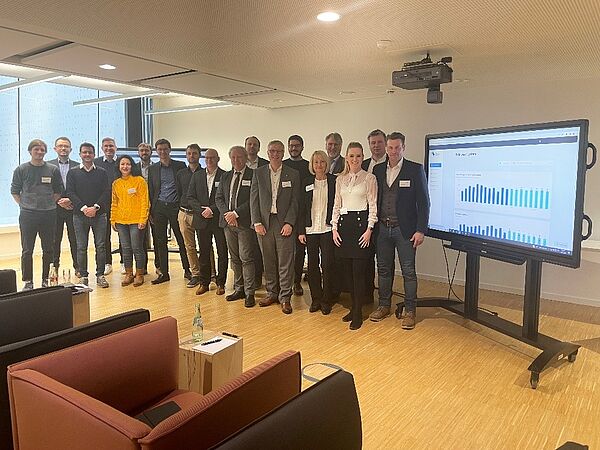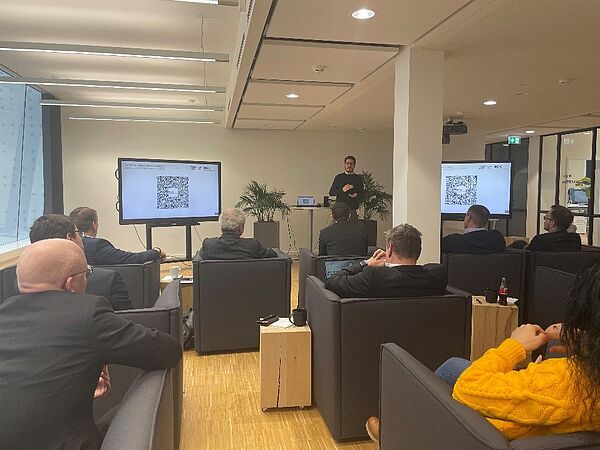Under the auspices of the competence platform Artificial Intelligence North Rhine-Westphalia (KI.NRW), an AI-based early warning system and AI-based quality assurance has been developed in the flagship project corona.KEX.net with the participation of inIT. The early warning system uses AI methods, historical inventory data, current patient numbers, but also indicators from social media to detect and predict impending bottlenecks at an early stage. Thus, together with KEX Knowledge Exchange AG, Fraunhofer IIS, Fraunhofer IAIS and technovation, work has been done on a reliable and robust medical procurement infrastructure. Facilities such as hospitals and doctors' surgeries are now able to provide the best possible treatment services even in times of crisis. On 16 December 2022, the consortium presented the alert system’s final live demo at the INC Invention Center in Aachen, Germany.
Julian Bültemeier, research assistant at inIT, developed an automated check of certificates for protective equipment (e.g. FFP2 masks) in the project. As press releases have also frequently shown recently, a manual certificate check has not proven to be reliable. During the Corona Pandemic, counterfeits were also purchased in large quantities. The inIT's certificate check now ensures product quality in procurement and relieves staff by significantly simplifying the time-consuming manual checking of certificates.



